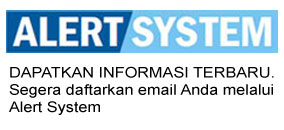DebMed GMS Leads the Change in Patient Safety and the Reduction of Hospital Readmissions
By DebMed(R)
CHARLOTTE, N.C., Oct. 24, 2012 — /PRNewswire/ — DebMed®, creator of DebMed® GMS™ (Group Monitoring System), the world’s first evidence-based group monitoring system to electronically monitor, track and report compliance rates in real-time based on the World Health Organization’s (WHO) “Five Moments for Hand Hygiene,” is providing assurance through technology for the Hospital Readmissions Reduction Program.
Under the Affordable Care Act, the Hospital Readmissions Reduction Program, effective October 1, 2012, reduces reimbursements to hospitals with excess readmissions. Hospitals that perform worse than average, with patients returning to the hospital within 30 days of discharge, will face up to a 1 percent penalty, which would average $125,000 per facility this coming year, according to government estimates. The penalties increase over time up to 3 percent in 2015. Under the program, the measures that are related to the reimbursements focus on heart attacks, heart failure, pneumonia, surgical care, patients’ perception of care and healthcare-associated infections (HAIs).
“With legislation threatening hospital reimbursements as a result of patient readmissions, it is imperative that patient quality and safety are top of mind,” said Paul Alper, Vice President of Strategy and Business Development, DebMed. “DebMed is helping hospitals lead the change to improved care through electronic hand hygiene monitoring with the DebMed GMS that provides actionable, real-time data to help increase hand hygiene compliance and thereby reduce preventable infections.”
The DebMed GMS electronically tracks and reports healthcare workers’ hand hygiene behavior, helping to increase hand hygiene compliance and thereby reduce healthcare-associated infections to improve patient safety and minimizing the impact of the new readmissions penalties. A study conducted at Duke University Medical Center and published in Infection Control and Hospital Epidemiology showed that minimal improvements in compliance lead to substantial savings, concluding that a 1 percent increase in hand hygiene compliance would result in annual savings of $39,650 for a 200-bed hospital.
HAIs account for nearly 2 million infections, 99,000 deaths and up to an estimated $45 billion in costs annually in the U.S alone. Proper hand hygiene is the number one way to prevent HAIs, yet the typical rate of hand hygiene compliance is estimated to be only 40-50 percent.
Nearly one-fifth of Medicare beneficiaries – roughly 2 million beneficiaries per year – discharged from a hospital return within 30 days, according to the Medicare Payment Advisory commission (MedPAC). Identifying and reducing avoidable readmissions will improve patient safety, enhance quality of care and lower healthcare spending.
Sumber: heraldonline.com










[…] The World Health Organization’s (WHO) “Five Moments for Hand Hygiene,” is providing assurance through technology for the Hospital Readmissions Reduction Program. Read more […]